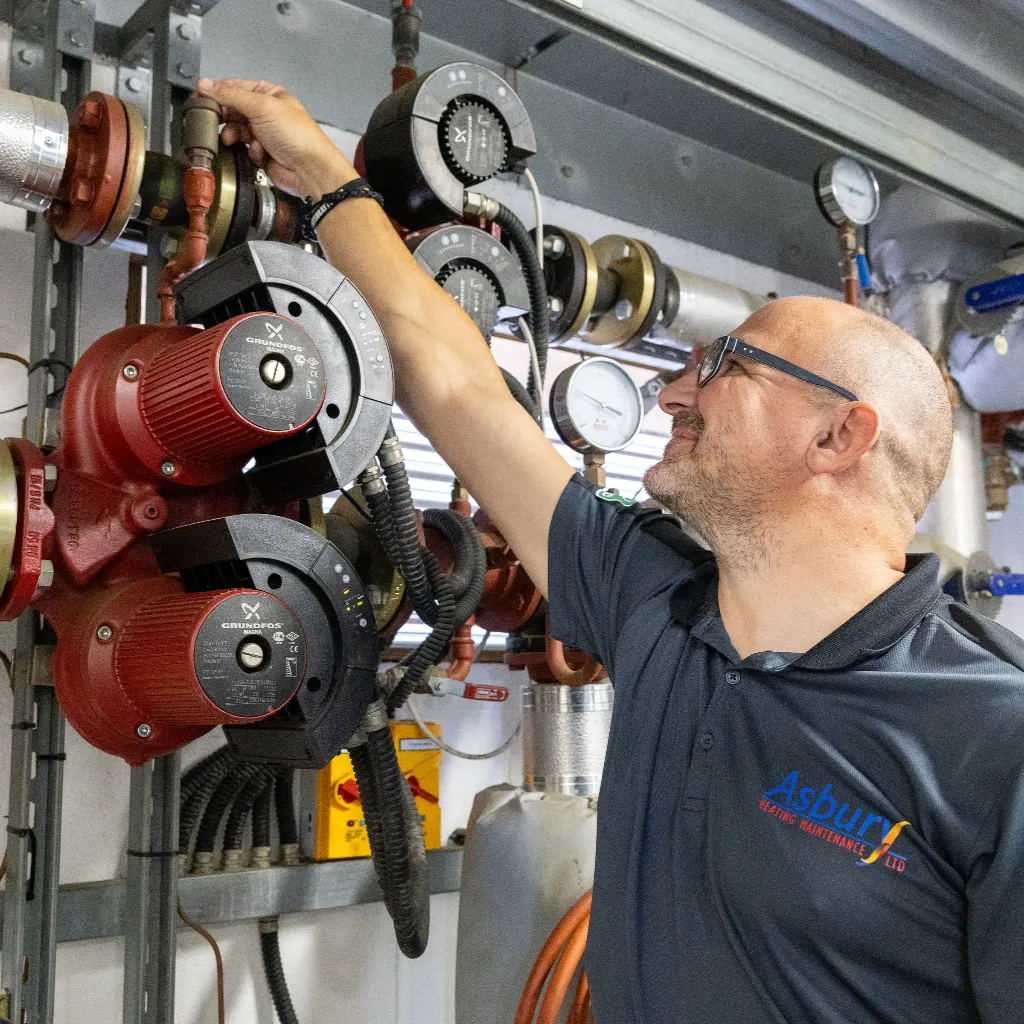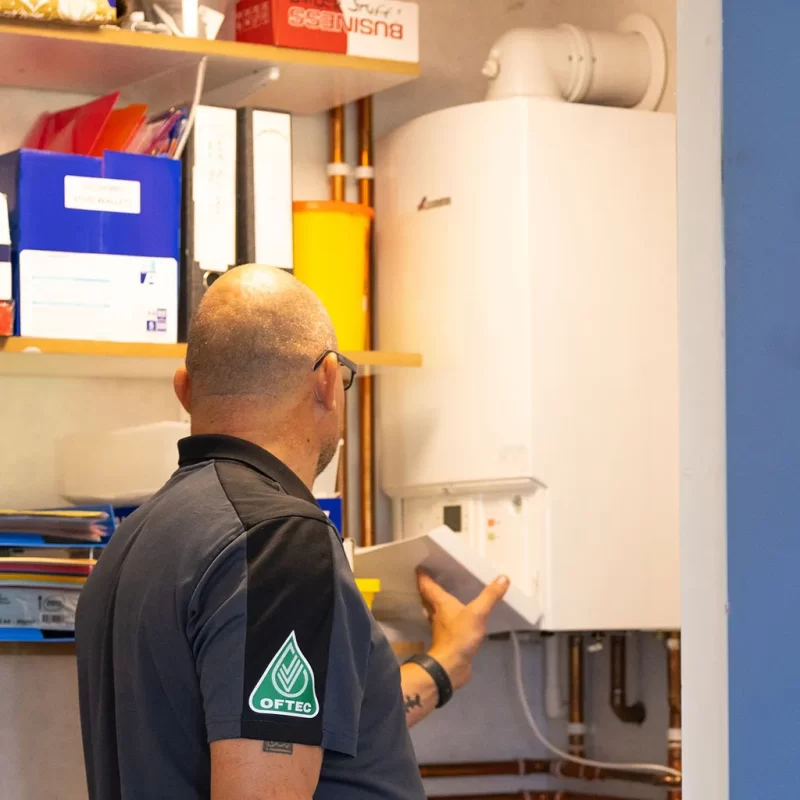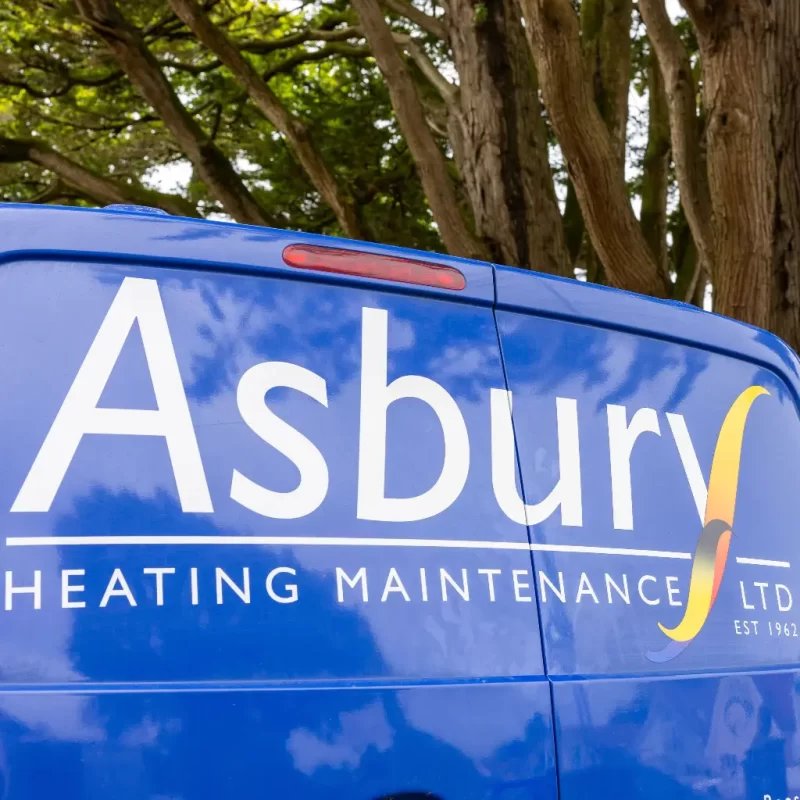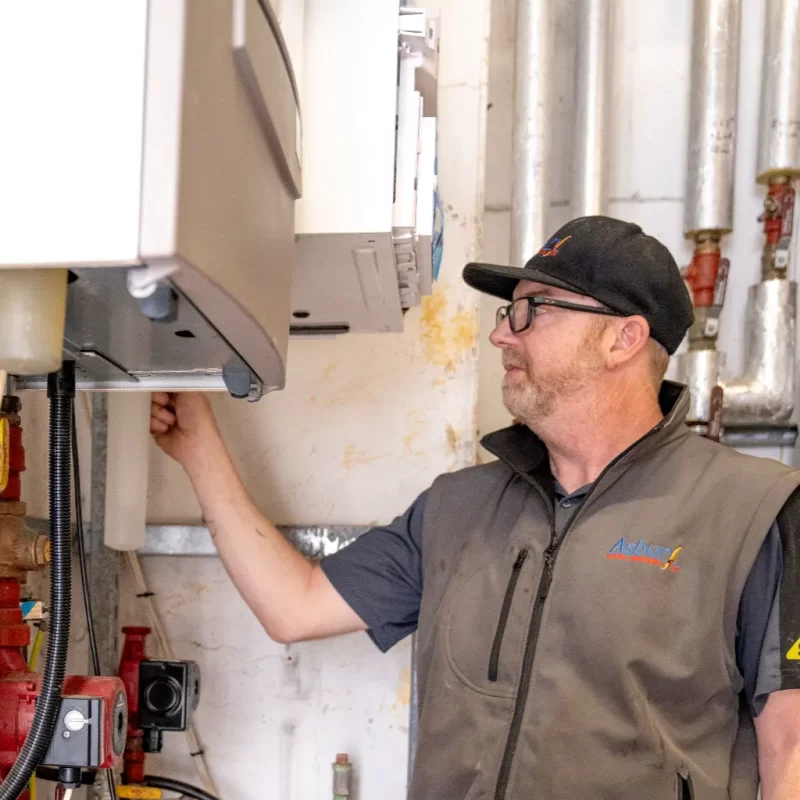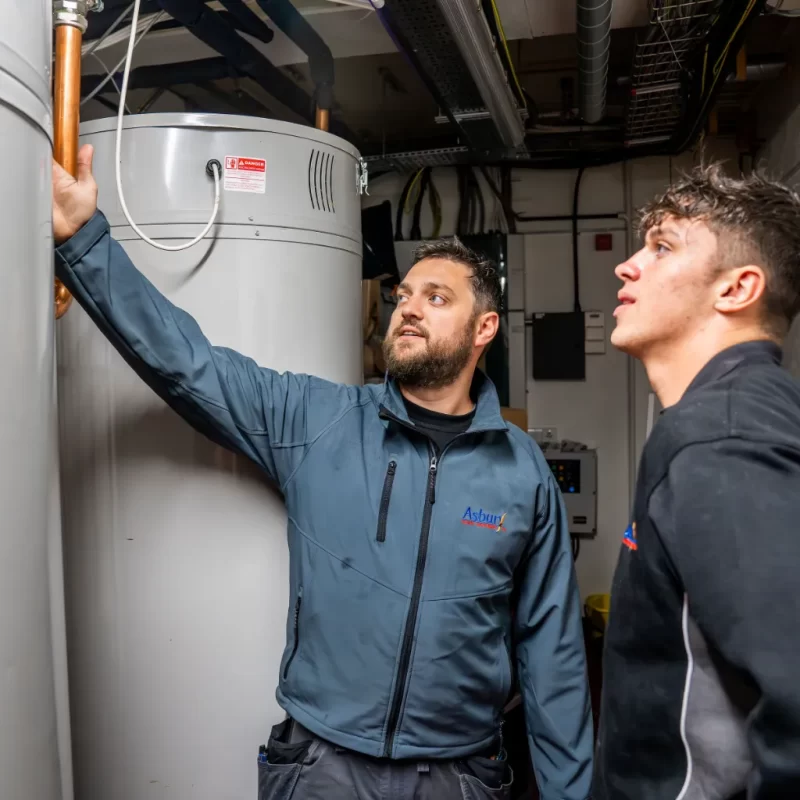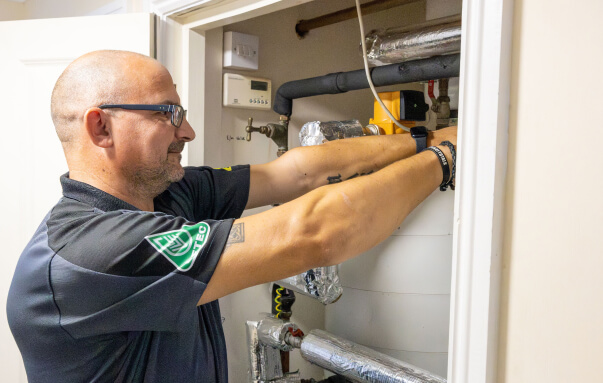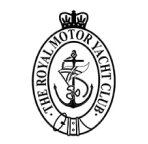Commercial vs Domestic Gas Engineers: What’s the Difference?
Did you know that choosing the wrong gas engineer for your business could lead to costly mistakes and even safety risks? Domestic gas engineers are experts in home heating. On the other hand, commercial gas engineers are skilled in managing larger, more complex systems for a range of industries. These include systems in places like offices, hotels, schools, and factories. Each of these needs a special skill set to maintain safety, compliance, and efficiency.
For commercial property owners, facilities managers, and landlords, understanding the distinction between these two roles is essential. A qualified commercial gas engineer ensures your heating, hot water, and gas systems work well and comply with safety laws.
This post breaks down the key differences between them. It explains why hiring a commercial gas engineer is critical to the smooth operation of your business.

Training & Qualification Requirements for Commercial Gas Engineers
Commercial gas engineers and domestic gas engineers have different training and qualifications. Both are required to be Gas Safe registered. However, commercial gas engineers require additional training to manage larger, more complex systems in businesses. GOV.UK states that Gas Safe registration is required by law for anyone performing gas work in the UK. Engineers are required to renew their registration annually to continue working legally.
Commercial gas engineers need extra certifications. These include the COCN1 (Core Commercial Natural Gas Safety) qualification. Those moving from domestic work should also have the CODNCO1. This qualification enables them to work on commercial gas appliances with a capacity of above 70kW and up to 1.8MW. It allows them to work on high-capacity heating systems, industrial boilers, gas burners, and HVAC systems. These qualifications ensure they can safely manage systems that use more gas and have more complex pipework.
Key qualifications and areas of expertise for commercial gas engineers:
- CGO1 (Commercial Core Gas Safety) qualification
- Ability to work on systems with higher gas consumption and larger pipework
- Training in industrial boilers, HVAC systems, and gas burners
On the other hand, domestic gas engineers are trained to work on smaller systems found in homes. They are qualified to handle appliances with a maximum input of 70kW and pipework up to 35mm in diameter. While they also prioritise safety, their expertise is limited to less complex systems.
Our Gas Safe-certified engineers can handle both commercial and domestic systems. We will ensure that your business heating system is safe, efficient, and compliant with industry regulations.
How Complex Are Your Heating Systems?
Commercial gas engineers work with much larger and more complex systems than domestic gas engineers. Domestic engineers work with smaller systems in homes. Commercial engineers oversee larger systems in various settings, including offices, hotels, schools, and factories. These commercial systems are designed for more rigorous demands. They require expert knowledge to guarantee safety and efficiency.
Domestic gas systems typically involve:
- Smaller boilers, cookers, and gas fires (under 70kW)
- Simple designs and smaller pipework (up to 35mm)
- Less frequent servicing and maintenance
- Primarily found in residential homes or small buildings
Commercial gas systems, on the other hand, involve:
- Industrial boilers, gas-powered engines, and HVAC systems
- Larger-scale pipework designed for multiple floors or buildings
- High-output appliances that serve entire buildings or large complexes
- More frequent maintenance checks, safety inspections, and upgrades
The Health and Safety Executive (HSE) states that anyone working on gas appliances in homes must be Gas Safe registered. They also need to be skilled in their specific area of gas work. Usually, domestic engineers deal with smaller systems.
Commercial systems require much more intricate management due to their size and complexity. Regular maintenance and system checks help things run efficiently. This lowers the chance of downtime and ensures we meet regulatory requirements.
Our engineers are fully trained to handle both small and large systems. We will ensure your commercial heating systems operate efficiently, whether it’s a routine check or an urgent repair.
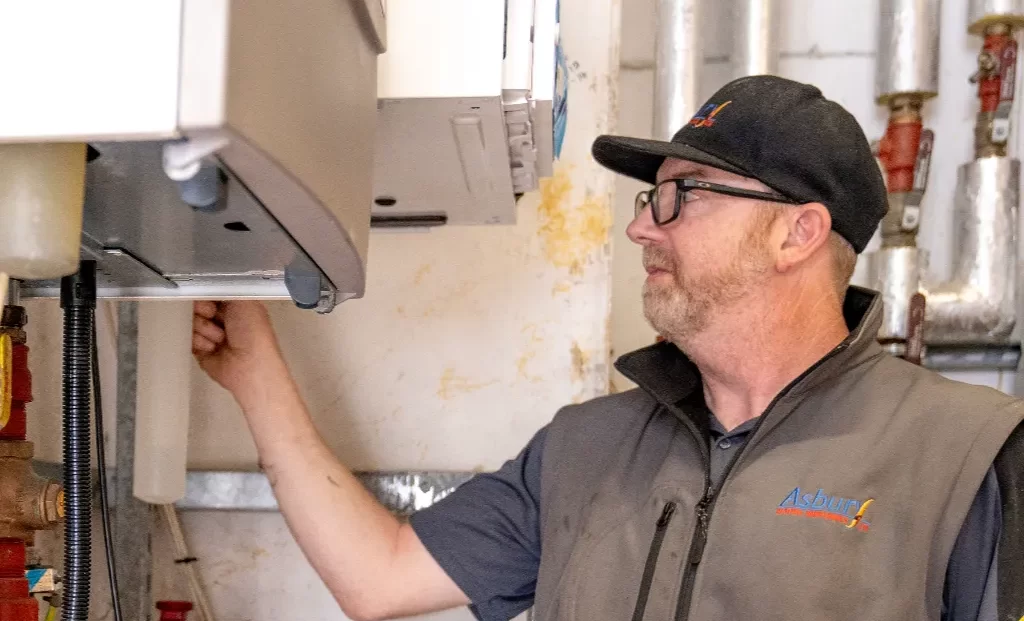

Why Choosing the Right Engineer Makes Your Business Systems Compliant
Safety and compliance are critical when managing gas systems in commercial properties. Commercial gas engineers are trained to manage the higher risks of larger, more complex systems. Commercial systems are more complex and larger than domestic ones. They require more regular and thorough safety checks to comply with industry standards.
Commercial gas engineers work with water safety specialists in big places like schools, care homes, and hospitals. Here, facilities managers must conduct Legionella risk assessments under the Control of Substances Hazardous to Health Regulations (COSHH). The HSE’s Approved Code of Practice (L8) tells landlords and businesses to check and manage the risk of Legionella bacteria in water systems. This is especially important in commercial buildings with complex hot and cold water systems. They also conduct regular gas safety inspections to check for leaks, usage issues, or other potential risks. Their expertise ensures that your system, including boilers and HVAC, complies with Gas Safe rules and health and safety laws.
Domestic gas engineers handle smaller systems with fewer safety checks. In contrast, commercial systems need more specialised care. Hiring a qualified engineer ensures compliance and keeps your business running smoothly. Our Gas Safe-certified engineers work on complex commercial systems. Whether it’s a Gas Safety inspection or a Legionella risk assessment, we’ll ensure your systems remain compliant and safe.
What Does a Commercial Gas Engineer Do for Your Business?
A commercial gas engineer has numerous responsibilities due to the complex systems they manage. Commercial gas engineers are responsible for maintaining large heating, hot water, and gas systems. They work in business settings, unlike domestic gas engineers who focus on homes. Their projects include hotels, schools, manufacturing plants, and commercial kitchens.
Commercial gas engineers handle tasks such as:
- Installing and maintaining industrial boilers and HVAC systems.
- Repairing and servicing large-scale gas appliances, including gas burners and pumps.
- Managing gas-powered systems across multiple floors or buildings.
- Conducting emergency call-outs for urgent repairs and system failures.
- Performing compliance checks to ensure systems meet safety and legal regulations.
Commercial gas engineers need more training and a broader skill set than domestic engineers. This is due to the size and complexity of their systems. Their expertise helps businesses stay compliant with regulations. It also ensures that systems run smoothly and without disruptions.
By hiring a qualified commercial gas engineer, your business can rely on safe, efficient, and compliant systems.

Why You Need a Commercial Gas Engineer for Your Property
Choosing the right gas engineer for your business is crucial for safe, efficient, and compliant heating systems. Commercial gas engineers specialise in managing complex systems in business settings. They ensure that your heating, hot water, and gas appliances operate efficiently.
Asbury Heating delivers a wide range of commercial heating services. These services include installation, maintenance, and emergency repairs. Our Gas Safe-certified engineers work on all system sizes and types. They ensure efficiency and follow safety regulations. Don’t risk your business’s heating system.
Call 01202 745189 or arrange a consultation and let us keep your systems safe and reliable, so you can focus on running your business.


